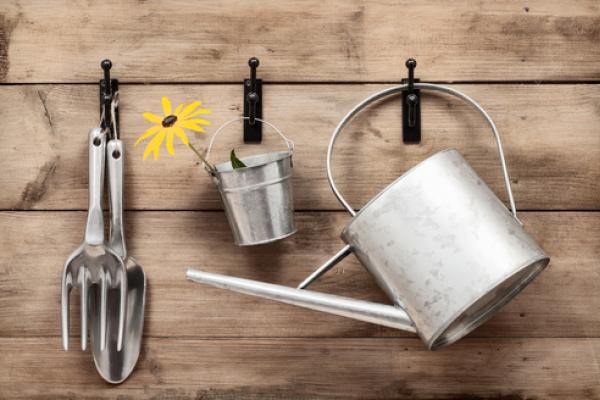Editor's Note: The following is an excerpt from Fred Bahnson's new book Soil and Sacrament: A Spirtual Memoir of Food and Faith.
The garden is our oldest metaphor. In Genesis God creates the first Adam from the adamah, and tells him to “till and keep” it, the fertile soil on which all life depends. Human from humus. That’s our first etymological clue as to the inextricable bond we share with the soil. Our ecological problems are a result of having forgotten who we are—soil people, inspired by the breath of God. “Earth’s hallowed mould,” as Milton referred to Adam in Paradise Lost. Or in Saint Augustine’s phrase, terra animata—animated earth.
The command to care for soil is our first divinely appointed vocation, yet in our zeal to produce cheap, abundant food we have shunned it; we have tilled the adamah but we have not kept it.
Tilling is, in fact, often harmful to soil structure and creates erosion. Since World War II, as a result of excessive tillage and use of petrochemicals, we’ve managed to squander a third of our country’s topsoil. With the combined challenges of climate change, peak oil, and the global food crisis, the balance of life on earth is rapidly approaching a tipping point. In the ways we grow our food and in the food we choose to eat, we have largely lost our connection with the adamah; we have failed to live in the garden.
Anathoth taught me that to live and work in a garden is to relearn the most basic realities of life. Rather than an escape from the world’s problems, a garden—especially a communal food garden—confronts us with those very problems. Referring to Voltaire’s famous dictum We must cultivate our garden,cultural critic Robert Pogue Harrison says in Gardens: “Notre jardin is never a garden ofmerely private concerns into which one escapes from the real; it is that plot of soil on the earth, within the self, or amid the social collective, where the cultural, ethical, and civic virtues that save reality from its own worst impulses are cultivated. Those virtues are always ours.”
Fred Bahnson is author of Soil and Sacrament: A Spiritual Memoir of Food and Faith (Simon & Schuster). He is the director of the Food, Faith, and Religious Leadership Initiative at Wake Forest University School of Divinity. © Fred Bahnson
Image: Garden tools, Christopher Elwell / Shutterstock.com
Got something to say about what you're reading? We value your feedback!
